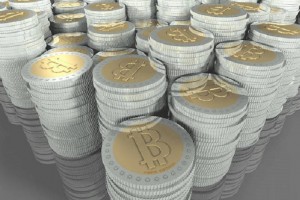Latest Posts
-
Finance 0
HH Are You Entering The Sequence-Risk Zone?
If you are like lots of investors, you’ve probably never heard of sequence risk — also called sequence-of-returns risk — but it is a particularly pertinent concept for those nearing or just entering retirement. Simply put: Sequence risk refers to the order or the timing in which your investment returns occur. It specifically relates to the risk of early declines and ongoing withdrawals impacting your spending during a certain period of time, most often in retirement. It is this concept that helps explains why two retirees with the same wealth levels might not have the same retirement experience, even if their long-term return averages l...On November 29, 2017 / By Kurt Osterberg -
Finance 0
E Rating Global Investing
Yesterday, www.StockGumshoe.com, a daily blog run by Travis Johnson, published its readers’ ratings for www.global-investing.com which you are now reading. We were top-rated at 5 stars for our performance and for value, and at 4 stars for the quality of our content and analysis. However, our customer service rating was at 3 stars, because it hard to handle. As we plan to move our website into the talkmarkets.com system, I think the customer service function will be less onerous and therefore will improve. Thank you to all the gummies who tried out this newsletter and took the time to rate my work. This is the best kind of publicity...On November 29, 2017 / By Kurt Osterberg -
Finance 0
Acquiring Revenue Can Quickly Destroy Shareholder Value
This firm moved to bolster its position within its market by acquiring a competitor in 2016, but it paid too high a price. In addition, the expected synergies from the deal have not come to fruition and the profitability of the combined firm has fallen instead of rising. Despite the struggles, the expectations baked into the stock price remain overly optimistic and leave shares significantly overvalued. For these reasons and more, Diebold Nixdorf Inc. (DBD: $18/share) is in the Danger Zone. DBD Struggled to Grow Profits Before the Acquisition During the 10-year period prior to the acquisition (2005-2015), DBD’s revenues and after-tax profi...On November 29, 2017 / By Kurt Osterberg -
Finance 0
Natural Gas Rallies Again, Though Pulls Back From Resistance
Natural gas prices have continued their run this week, closing up three days in a row following their previous 5 straight days of selling. We rolled over to the January contract with the December expiry yesterday, and despite a morning rally prices did pull back a bit through the afternoon. Still, between the contract roll and the continued rally, weekly prompt month gains are very impressive. While the prompt month rally between the contract roll and continued January contract strength was impressive, more impressive was Henry Hub cash strength in the face of bearish weather expectations the next couple of days, as the day-over-day cash in...On November 29, 2017 / By Kurt Osterberg -
Finance 0
Why Tech Investors Love The SaaS Business Model
Investors love businesses that have a reputation for minting cash. And as far as tech companies go, the Software as a Service (SaaS) model is as good as it gets. It provides predictable, quantifiable, and fast-growing revenue for any company that can execute correctly – and everyone from venture capitalists (like Marc Andreessen) to asset managers (like Blackrock) love investing in companies with these traits. Today’s infographic from TIMIA Capital explains why this is the case. WHAT IS SAAS? Unlike in years past when software was bought in a physical form at a store, much of today’s software runs right off the cloud. This is made pos...On November 29, 2017 / By Kurt Osterberg -
Finance 0
Weekly Heating Oil Prices – Wednesday, Nov. 29
We’ve used data based on the Energy Information Administration (EIA), which publishes price data weekly on home heating oil in 38 states by dollar-per-gallon before taxes. Unlike natural gas and electricity, home heating oil is provided by independent retailers. The latest price of home heating oil nationwide is $2.85, up two cents from last week and up eighteen cents since the beginning of the season. EIA’s heating oil data is seasonal – from October through March. Here’s a look at the series since its inception in 1990. EIA breaks the data down into regions and sub-regions. Here we’ve overlayed the US average...On November 29, 2017 / By Kurt Osterberg -
Finance 0
Managing Assets When Markets Become Irrationally Effervescent
When I co-hosted a national talk radio show in 2000, tech stock inquiries came furious and fast. JDSU or Sun Micro? Powerwave or Cisco? Webvan or theGlobe.com? Few expressed concern about a recession. Few wondered if they might lose money by investing in the New Economy’s Internet favorites. Even fewer callers believed that they might want to take less risk rather than more. Granted, tech stocks may not be as wildly overvalued as they were in 2000. That said, the U.S. stock market as a whole is beginning to look a lot like it did in previous bubbles. Speculative excess is certainly not confined to the equity arena. Consider the crypto craz...On November 29, 2017 / By Kurt Osterberg -
Finance 0
Market Talk- Wednesday, Nov. 29
Asia performed well overnight following on from a strong US session. The Nikkei opened strong and remained well bid into the close. The Yen fell towards the high 111’s a loss of around +0.3% on the day. The North Korean missile test with it apparently falling into Japanese waters, was quickly ignored even given the seriousness of the incident. Financials and exporters all leading the rally with futures continuing the trend into US trading hours. We saw moves off-set between the Hang Seng and Shanghai interestingly with financials the worst performers. As commodities gained then so did the Australian ASX closing +0.5% better on the day. Top ...On November 29, 2017 / By Kurt Osterberg -
Finance 0
FANG Shareholders Lost Almost 20 Times More Than Bitcoin Investors Today
While all eyes were told to focus on the cryptocurrency chaos over here… the widely-owned ‘no-brainers’ FANG stocks suffered total losses that were almost 20 times larger than the ‘losers’ in Bitcoin… At the end of the day – amid all the turmoil – Bitcoin ended the day down over $3 billion in market cap… However, FANG stocks suffered their biggest market cap loss ever – losing almost $60 billion today… Surely – as Joseph Stiglitz warned, investors should be banned from trading FANG stocks – if they can lose this much money in a day, the trading of these share...On November 29, 2017 / By Kurt Osterberg -
Finance 0
Stocks And Precious Metals Charts – FANG Stocks Take The Gas Pipe – Dow ‘Industrials’ Set Record
“He who does not bellow the truth when he knows the truth makes himself the accomplice of liars and forgers.” Charles Peguy The Tech stock bubble was hit by selling on higher than usual volume today, leading the NDX lower by almost a full percent. The SP 500 finished up unchanged. But the Dow Industrials closed higher at a new record, led by those industrial titans like JP Morgan, Goldman Sachs, American Express, United Healthcare, Pfizer, Disney and Verizon. The pundits had trouble getting their stories straight today, as some went with a ‘risk on’ interpretation, since Treasuries and precious metals got hit. But th...On November 29, 2017 / By Kurt Osterberg
Top Posts
-
 The Importance for Individuals to Use Sustainable Chemicals
The Importance for Individuals to Use Sustainable Chemicals
-
 Small Businesses: Finding the Right Candidate for the Job
Small Businesses: Finding the Right Candidate for the Job
-
 How to Write the Perfect Thank You Letter After Your Job Interview
How to Write the Perfect Thank You Letter After Your Job Interview
-
 3 Best Large-Cap Blend Mutual Funds For Enticing Returns
3 Best Large-Cap Blend Mutual Funds For Enticing Returns
-
 China suspected in massive breach of federal personnel data
China suspected in massive breach of federal personnel data
















